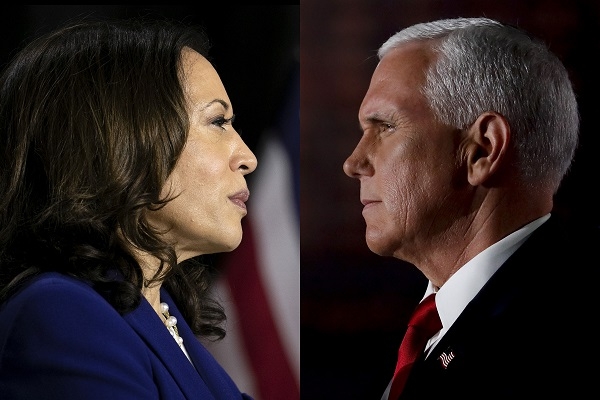Vice President of the United States -Irrelevant to Powerful!
Total Views |
In a press conference in 1960, the then President of the United States of America, General (Retd) Dwight Eisenhower was asked to give any example of any major idea from his then Vice-President Richard Nixon that he (Eisenhower) had adopted fully as a policy. Eisenhower’s response made history when he stated that, “If you give me a week, I might think of one. I don’t remember”.

While the position of the Vice-President is considered as “a heart-beat away from the presidency”, the actual role of the VP has evolved throughout the years from being irrelevant to being a potential position of power in current times.
The position of vice-president was created at the very end of the 1787 Constitutional Convention of the U.S.; almost as an after-thought to have someone to lead committees that handled unfinished government business. The U.S. Constitution gave little power to the Vice Presidents. They would preside over the U.S. Senate, serve as tie-breaking vote in case of a dead-lock in issues before the Senate, and supervise the counting of the Electoral College’s vote.
In general VPs are considered as politically expedient during elections to gain critical votes and to balance the appeal of the presidential candidate across the country. Post-elections, most were ignored by the presidents they helped to get elected, and their duties were never defined clearly and fully. By the 1960s, it was clear that the U.S. Congress needed to clear-up the vague profile of the Vice President.
In 1963, then President John Kennedy was assassinated and his VP Lyndon Johnson assumed the presidency. However, this led to the office of the Vice President laying vacant for months. In response; the Congress legislated the 25th Amendment, which lays out the procedure for acquiring a replacement VP and also resolved in this same amendment that, if a president dies or becomes incapacitated, the VP becomes the president instead of just taking over the presidential duties. (Prior to the 25th Amendment, the U.S. Constitution was vague on this issue).
In recent times, the selection of the VP has been transformed into a media frenzy, and predictably into an event supported by a ‘friendly press’, becoming a part of the campaign’s media strategy. As a result, Vice Presidents now-a-days have higher profiles and are often tasked to balance out the presidential candidate’s political deficiencies. In the role of elected VP, some like Al Gore (who served as VP to President Bill Clinton) took on the role as a powerful advocate for the environment; while others tried to reinvent the position by involving themselves into policy developments.
Interestingly, to date only white men have been elected to serve in the position of vice-president; while only two white women, Geraldine Ferraro in 1984 and Sarah Palin in 2008, and one mix-race woman Kamala Harris in 2020, have been nominated to fight elections for the office of the Vice President. VPs still attempt to use their role as a springboard to get elected in future as president, but in the last 250 years since the creation of the USA, only 14 out of 48 VPs have managed to become presidents.
Here are some memorable quotes from former Vice Presidents that defined their understanding of the role of the vice-president.
- "If we do everything right, if we do it with absolute certainty, there's still a 30% chance we're going to get it wrong," former Vice President Joe Biden, and the current nominee of his party for the 2020 Presidential election.
- "If we don't succeed, we run the risk of failure," former VP Dan Quayle who served under then president George HW Bush.(1989-1993)
- "Once there were two brothers. One went away to sea; the other was elected vice president. And nothing was heard of either of them again," former VP Thomas R Marshall. (1913-1921)
- And the final word from former VP Joe Biden: “It’s easy being vice president—you don’t have to do anything.”

